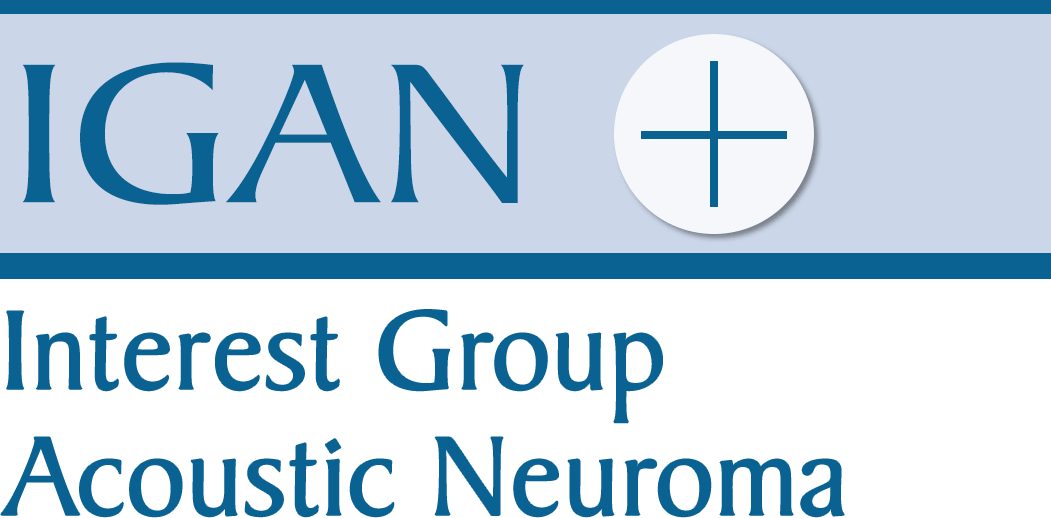Diagnosis: Unsatisfactory situation with diagnosis of acoustic neuroma
Diagnosis is still the weakest link in the chain of the acoustic neuroma disease: early and late symptoms – diagnosis – decisions on treatment – treatment – rehabilitation. This is very serious as if it is diagnosed late, the chances of curing it worsen drastically.
The fact is that an acoustic neuroma shows clear symptoms. It is also a fact that these symptoms are not solely specific to this brain tumour. However, unfortunately it is also a fact that when it comes to explanations, interpretation and analysis of these symptoms a lot still goes very wrong, both with patients and doctors.
Those affected, particularly females and workaholics, tend to play down, belittle and negate complaints. Doctors (only some, but unfortunately still too many) tend to dismiss such symptoms like tinnitus, sudden deafness, hearing loss, headaches and dizziness as general complaints, as a consequence of overworking, stress or «normal aging». As such, treatment is equally outrageous and ranges from tranquilising drops to massages. Those affected feel like wimps or hypochondriacs and the acoustic neuroma grows and grows ......It still happens that the situation comes to a head and genuine emergency operations become necessary, such as was the case for forum members monula and Dirky Harry.

Luckily, there are also several doctors – general practioners, specialist ENT doctors, neurologists and even orthopaedists – who either immediately, or at the latest with the onset of two or more of these symptoms, arrange for the sole test that can prove the presence of an acoustic neuroma brain tumour: a Magnetic resonance Tomography (MRT).
Recommendations for diagnosis of a suspected acoustic neuroma
All diagnosis procedures are painless for the patient and not particularly time consuming. The procedures are diverse and interesting both technically and in terms of methodology, so perhaps you can even take a little pleasure from the diagnosis. If they show a clear result, in any case it's always better to find out the truth in a timely manner than to find out later on.
As a lesson from many diagnoses that have unfortunately been made too late, the following is recommended: If one of the typical acoustic neuroma symptoms occurs, you must push to get a clear response as to the possible causes and to rule out other causes. Watery explanations or dismissive statements should not be accepted. A Computer Tomography should be rejected as a cheap, imaging diagnosis procedure. With no obvious, yet to be clarified causes when it comes to a tumour, you always have to consider an acoustic neuroma. At the latest with the appearance of two symptoms you should demand a Magnetic Resonance Tomography. Initially, only small complaints are no reason to postpone an intensive diagnosis work up, rather it is an opportunity to seize: the sooner an acoustic neuroma is diagnosed, the bigger the chances of a successful and complication-free treatment!
